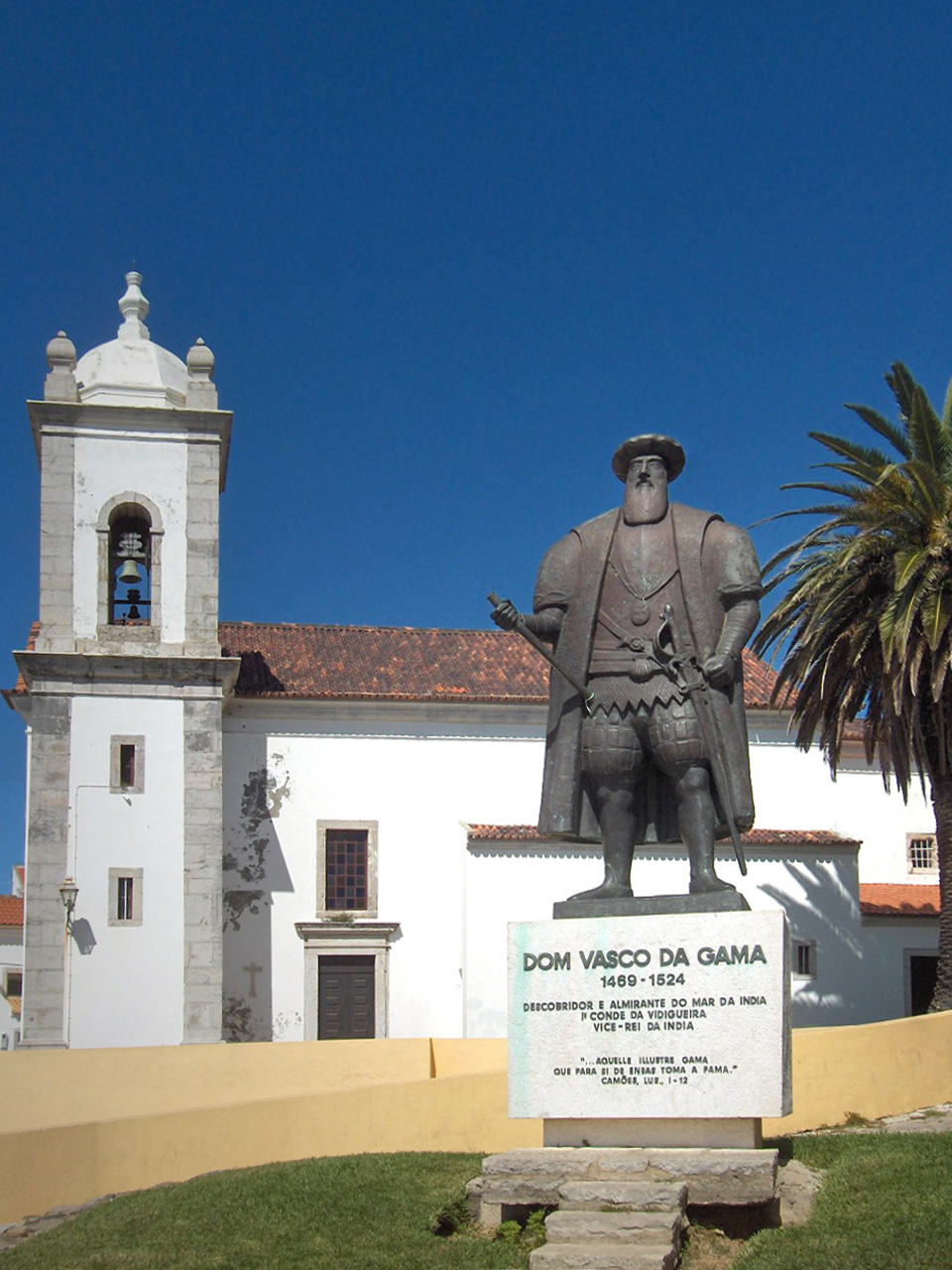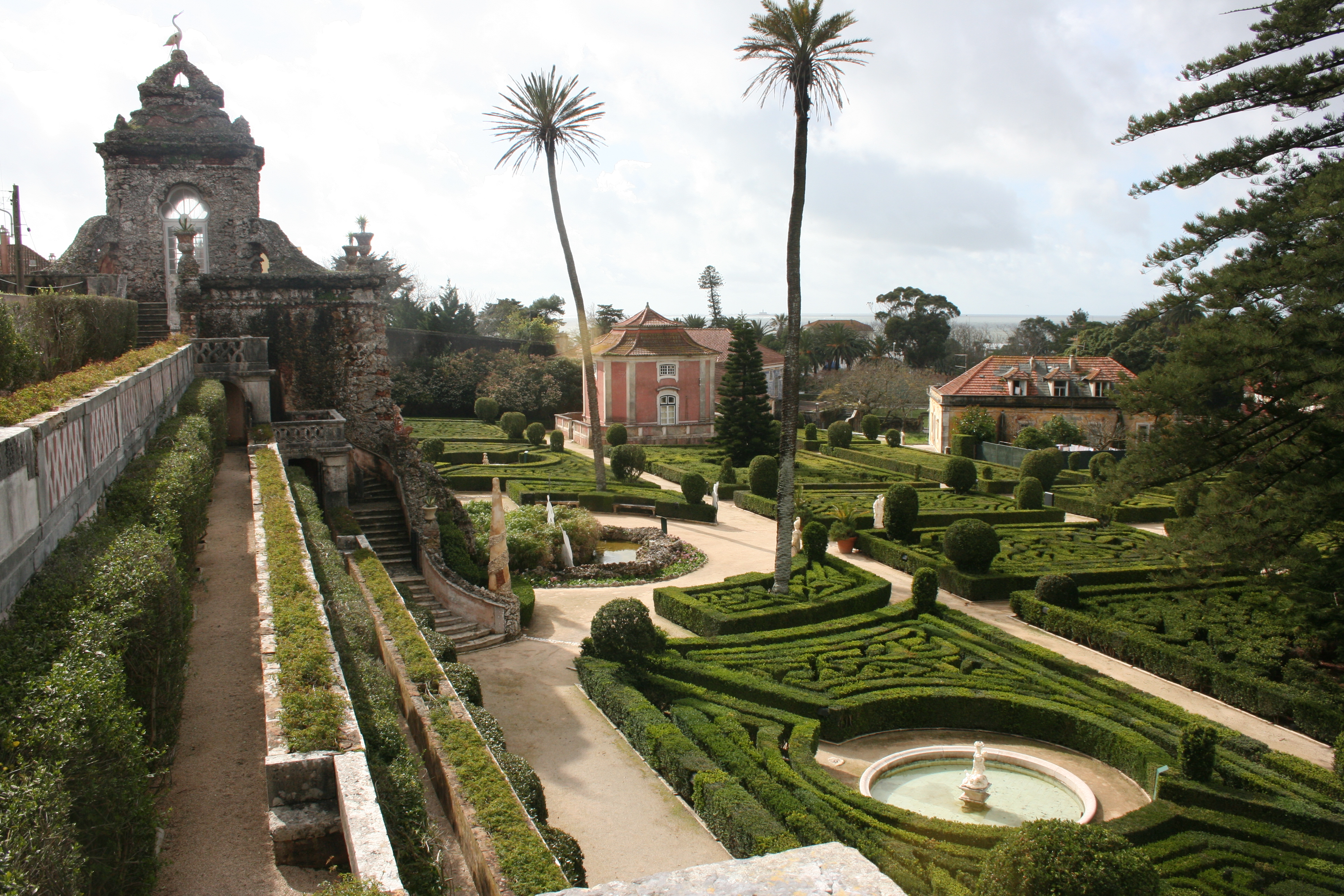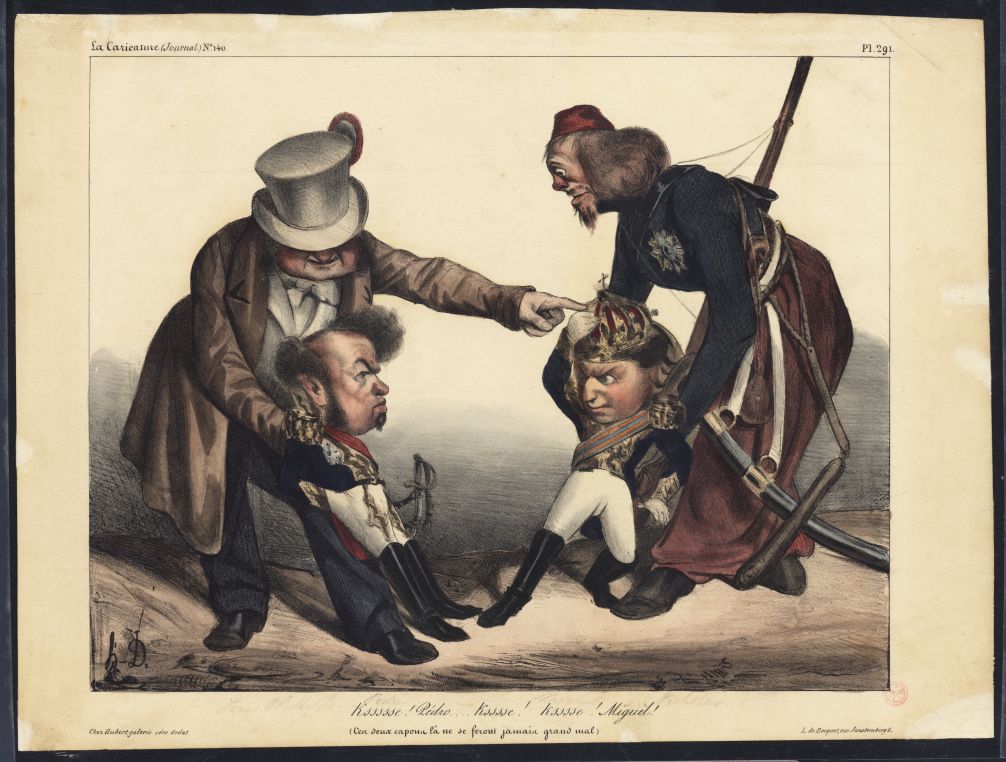|
Carlos Eugénio Correia Da Silva, Count Of Paço De Arcos
Carlos Eugénio Corrêa da Silva, 1st Viscount and 1st Count of Paço de Arcos (December 17, 1834 – November 5, 1905), was a Portuguese statesman. Origins The Count of Paço d'Arcos was born in the parish ('' freguesia'') of the same name near Lisbon on the December 17, 1834. His father was a high ranking Crown servant (''Pagador-Geral da Marinha'') that had allied himself with the liberal cause during the Portuguese Civil War. His mother came from a wealthy landed family, the Corrêa de Almeida ( Counts of São Januário), that owned much of the land in the parish, with the notable exception of the Palace of the Arches (''Palácio dos Arcos'') that had belonged to the Counts of Alcáçovas for centuries. He married on September 6, 1876 Emília Angélica de Castro Monteiro (b. Maia, Pedrouços, October 3, 1848), maternal granddaughter of the Viscounts and Counts of Castro, and had issue. The titles of Viscount and Count of Paço d'Arcos are held by the Correia da Silva fam ... [...More Info...] [...Related Items...] OR: [Wikipedia] [Google] [Baidu] |
Order Of The Tower And Sword
The Ancient and Most Noble Military Order of the Tower and of the Sword, of the Valour, Loyalty and Merit ( pt, Antiga e Muito Nobre Ordem Militar da Torre e Espada, do Valor, Lealdade e Mérito), before 1910 Royal Military Order of the Tower and Sword ( Portuguese: ''Real Ordem Militar da Torre e Espada''), is a Portuguese order of knighthood and the pinnacle of the Portuguese honours system. It was created by King Afonso V in 1459. The order may be bestowed on people or on Portuguese municipalities. Private Anibal Milhais was the only Portuguese Army private to be awarded the Order of the Tower and the Sword for Valor, for his actions in Lys, Belgium during World War I. History The order was originally created by King Afonso V of Portugal in 1459, under the name of the ''Order of the Sword'', inspired by the legend that Arab rule in Africa would end when a Christian prince would besiege the fortress at Fez. Knighthood in the Order of the Sword was given as reward to those ... [...More Info...] [...Related Items...] OR: [Wikipedia] [Google] [Baidu] |
Nobility
Nobility is a social class found in many societies that have an aristocracy (class), aristocracy. It is normally ranked immediately below Royal family, royalty. Nobility has often been an Estates of the realm, estate of the realm with many exclusive functions and characteristics. The characteristics associated with nobility may constitute substantial advantages over or relative to non-nobles or simply formal functions (e.g., Order of precedence, precedence), and vary by country and by era. Membership in the nobility, including rights and responsibilities, is typically Hereditary title, hereditary and Patrilinearity, patrilineal. Membership in the nobility has historically been granted by a monarch or government, and acquisition of sufficient power, wealth, ownerships, or royal favour has occasionally enabled commoners to ascend into the nobility. There are often a variety of ranks within the noble class. Legal recognition of nobility has been much more common in monarchies, ... [...More Info...] [...Related Items...] OR: [Wikipedia] [Google] [Baidu] |
Maia, Portugal
Maia () is a municipality in the Porto Metropolitan Area, ''Grande Porto'' subregion, in Norte Region, Portugal. It is located 11 km north of central Porto. The population in 2011 was 135,306, in an area of . There is one city (Cidade da Maia) and three towns (Moreira, Castêlo da Maia and Águas Santas) in the municipality. History The area of the current municipality (''concelho'') has been inhabited for millennia, with human occupation dating back to the Paleolithic period. In the many hills of the region, remains of villages from the Iron Age have been found. Attracted by the rich soil and abundance of resources, the Romans also left visible marks of their occupation in the area. In the middle of the thirteenth century, the Lands of Maia (''Terras da Maia'') extended from the city of Porto to the Ave river and from the sea to the mountains. In 1304 the Lands of Maia were incorporated into those of Porto, losing its political and administrative autonomy. In 1360, King Pe ... [...More Info...] [...Related Items...] OR: [Wikipedia] [Google] [Baidu] |
Caravels
The caravel (Portuguese: , ) is a small maneuverable sailing ship used in the 15th century by the Portuguese to explore along the West African coast and into the Atlantic Ocean. The lateen sails gave it speed and the capacity for sailing windward (beating). Caravels were used by the Portuguese and Castilians for the oceanic exploration voyages during the 15th and 16th centuries, during the Age of Discovery. Etymology Its English name derives from the Portuguese ''caravela'', which in turn may derive from the Latin ''carabus'' or in Greek, perhaps indicating some continuity of its carvel build through the ages. History The earliest caravels originated in the thirteenth century on the coasts of Galicia and Portugal. They may well have been derived from similar Muslim craft that were used elsewhere in the Iberian Peninsula. These early caravels were used for offshore fishing and some coastal cargo carrying. They were small, lightly-built vesselsperhaps of 20 tons or le ... [...More Info...] [...Related Items...] OR: [Wikipedia] [Google] [Baidu] |
Vasco Da Gama
Vasco da Gama, 1st Count of Vidigueira (; ; c. 1460s – 24 December 1524), was a Portuguese explorer and the first European to reach India by sea. His initial voyage to India by way of Cape of Good Hope (1497–1499) was the first to link Europe and Asia by an ocean route, connecting the Atlantic and the Indian oceans. This is widely considered a milestone in world history, as it marked the beginning of a sea-based phase of global multiculturalism. Da Gama's discovery of the sea route to India opened the way for an age of global imperialism and enabled the Portuguese to establish a long-lasting colonial empire along the way from Africa to Asia. The violence and hostage-taking employed by da Gama and those who followed also assigned a brutal reputation to the Portuguese among India's indigenous kingdoms that would set the pattern for western colonialism in the Age of Exploration. Traveling the ocean route allowed the Portuguese to avoid sailing across the highly disputed Medit ... [...More Info...] [...Related Items...] OR: [Wikipedia] [Google] [Baidu] |
Manuel I Of Portugal
Manuel I (; 31 May 146913 December 1521), known as the Fortunate ( pt, O Venturoso), was King of Portugal from 1495 to 1521. A member of the House of Aviz, Manuel was Duke of Beja and Viseu prior to succeeding his cousin, John II of Portugal, as monarch. Manuel ruled over a period of intensive expansion of the Portuguese Empire owing to the numerous Portuguese discoveries made during his reign. His sponsorship of Vasco da Gama led to the Portuguese discovery of the sea route to India in 1498, resulting in the creation of the Portuguese India Armadas, which guaranteed Portugal's monopoly on the spice trade. Manuel began the Portuguese colonization of the Americas and Portuguese India, and oversaw the establishment of a vast trade empire across Africa and Asia. He was also the first monarch to bear the title: ''By the Grace of God, King of Portugal and the Algarves, this side and beyond the Sea in Africa, Lord of Guinea and the Conquest, Navigation and Commerce in Ethiopia, A ... [...More Info...] [...Related Items...] OR: [Wikipedia] [Google] [Baidu] |
Oeiras Municipality, Portugal
Oeiras () is a town and municipality in the western part of Lisbon metropolitan area, located within the Portuguese Riviera, in continental Portugal. The municipality is part of the urban agglomeration of Lisbon and the town of Oeiras is about 16 km from Lisbon downtown. The population in 2011 was 172,120 living in an area of 45.88 km2, making the municipality the fifth-most densely populated in Portugal. Oeiras is an important economic hub, being one of the most highly developed municipalities of Portugal and Europe. It has the highest GDP per capita in the country, being also the second highest-ranking municipality (immediately after Lisbon) in terms of purchasing power as well as the second highest-ranking in the country as far as tax collection is concerned. These economic indicators also reflect the education level of its inhabitants, as Oeiras is the municipality with the highest concentration of population by tertiary education attainment in the country, their entr ... [...More Info...] [...Related Items...] OR: [Wikipedia] [Google] [Baidu] |
Napoleonic Wars
The Napoleonic Wars (1803–1815) were a series of major global conflicts pitting the French Empire and its allies, led by Napoleon I, against a fluctuating array of European states formed into various coalitions. It produced a period of French domination over most of continental Europe. The wars stemmed from the unresolved disputes associated with the French Revolution and the French Revolutionary Wars consisting of the War of the First Coalition (1792–1797) and the War of the Second Coalition (1798–1802). The Napoleonic Wars are often described as five conflicts, each termed after the coalition that fought Napoleon: the Third Coalition (1803–1806), the Fourth (1806–1807), the Fifth (1809), the Sixth (1813–1814), and the Seventh (1815) plus the Peninsular War (1807–1814) and the French invasion of Russia (1812). Napoleon, upon ascending to First Consul of France in 1799, had inherited a republic in chaos; he subsequently created a state with stable financ ... [...More Info...] [...Related Items...] OR: [Wikipedia] [Google] [Baidu] |
List Of Countships In Portugal
This is a list of countships in Portugal ( pt, Condados; singular ''Condado''; the title is ''Conde'', for Count, and ''Condessa'', for Countess): A *Count of Abrantes * Count of Agarez * Count of Agrolongo * Count of Águeda * Count of Aguiar * Count of Albuquerque * Count of Alcáçovas * Count of Alcântara *Count of Alcoutim * Count of Alegrete * Count of Alentém * Count of Alferrarede * Count of Alhandra * Count of Almada *Count of Almarjão *Count of Almedina *Count of Almeida * Count of Almeida Araújo * Count of Almendra *Count of Almoster *Count of Alpedrinha *Count of Alpendurada *Count of Alte *Count of Alto Mearim *Count of Alva *Count of Alvelos *Count of Alves Machado *Count of Alviela *Count of Alvito *Count of Alvor *Count of Amarante * Count of Ameal * Count of Anadia *Count of Antas * Count of Arcos * Count of Arganil * Count of Arge *Count of Ariz * Count of Armamar * Count of Armil * Count of Arnoso *Count of Arraiolos * Count of Arriaga * Count of Arrochela ... [...More Info...] [...Related Items...] OR: [Wikipedia] [Google] [Baidu] |
Portuguese Civil War
The Liberal Wars (), also known as the Portuguese Civil War (), the War of the Two Brothers () or Miguelite War (), was a war between liberal constitutionalists and conservative absolutists in Portugal over royal succession that lasted from 1828 to 1834. Embroiled parties included the Kingdom of Portugal, Portuguese rebels, the United Kingdom, France, the Catholic Church, and Spain. Roots of the conflict The death of King John VI in 1826 created a dispute over royal succession. While Dom Pedro, the Emperor of Brazil, was the king's oldest son, his younger brother Miguel contended that Pedro had forfeited his claim to the throne by declaring Brazilian independence. Pedro briefly entitled himself Dom Pedro IV of Portugal. Neither the Portuguese nor the Brazilians wanted a unified monarchy; consequently, Pedro abdicated the Portuguese throne in favor of his daughter, Maria, a child of 7. In April 1826, to settle the succession dispute, Pedro revised the first constitution of ... [...More Info...] [...Related Items...] OR: [Wikipedia] [Google] [Baidu] |
Freguesia
''Freguesia'' (), usually translated as "parish" or "civil parish", is the third-level administrative subdivision of Portugal, as defined by the 1976 Constitution. It is also the designation for local government jurisdictions in the former Portuguese overseas territories of Cape Verde and Macau (until 2001). In the past, was also an administrative division of the other Portuguese overseas territories. The ''parroquia'' in the Spanish autonomous communities of Galicia and Asturias is similar to a ''freguesia''. A ''freguesia'' is a subdivision of a ''município'' (municipality). Most often, a parish takes the name of its seat, which is usually the most important (or the single) human agglomeration within its area, which can be a neighbourhood or city district, a group of hamlets, a village, a town or an entire city. In cases where the seat is itself divided into more than one parish, each one takes the name of a landmark within its area or of the patron saint from the usually co ... [...More Info...] [...Related Items...] OR: [Wikipedia] [Google] [Baidu] |
Portugal
Portugal, officially the Portuguese Republic ( pt, República Portuguesa, links=yes ), is a country whose mainland is located on the Iberian Peninsula of Southwestern Europe, and whose territory also includes the Atlantic archipelagos of the Azores and Madeira. It features the westernmost point in continental Europe, and its Iberian portion is bordered to the west and south by the Atlantic Ocean and to the north and east by Spain, the sole country to have a land border with Portugal. Its two archipelagos form two autonomous regions with their own regional governments. Lisbon is the capital and largest city by population. Portugal is the oldest continuously existing nation state on the Iberian Peninsula and one of the oldest in Europe, its territory having been continuously settled, invaded and fought over since prehistoric times. It was inhabited by pre-Celtic and Celtic peoples who had contact with Phoenicians and Ancient Greek traders, it was ruled by the Ro ... [...More Info...] [...Related Items...] OR: [Wikipedia] [Google] [Baidu] |

.jpg)


.png)

